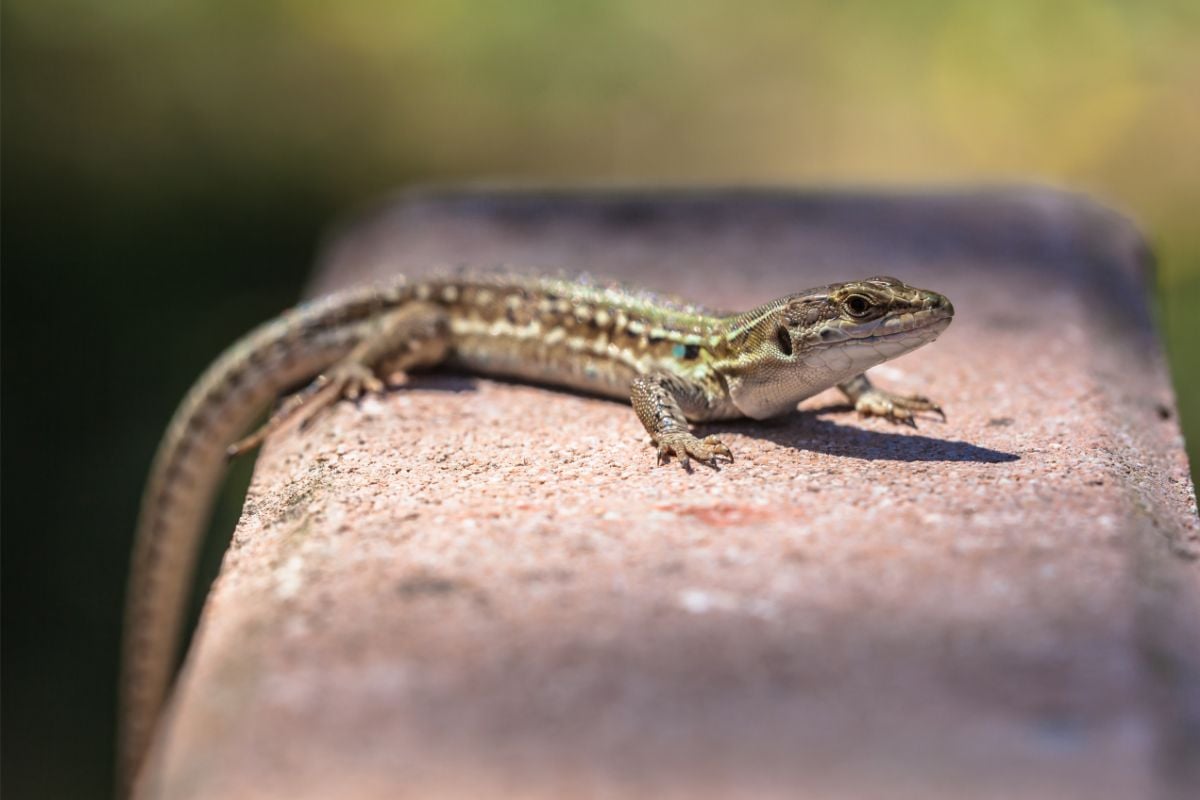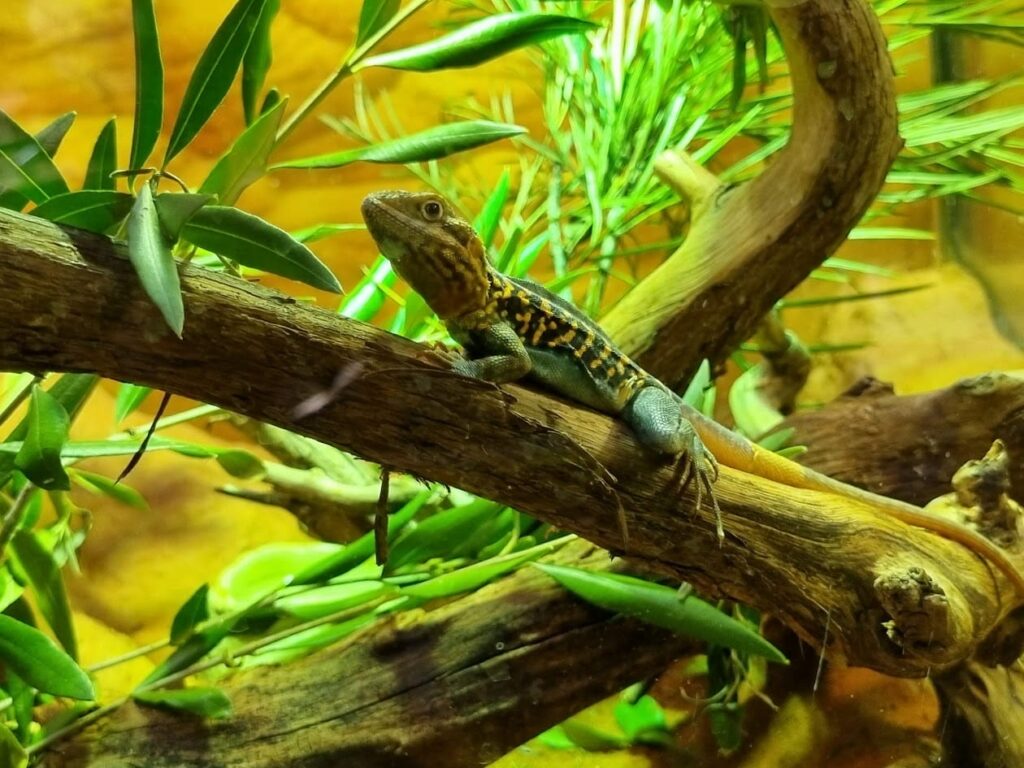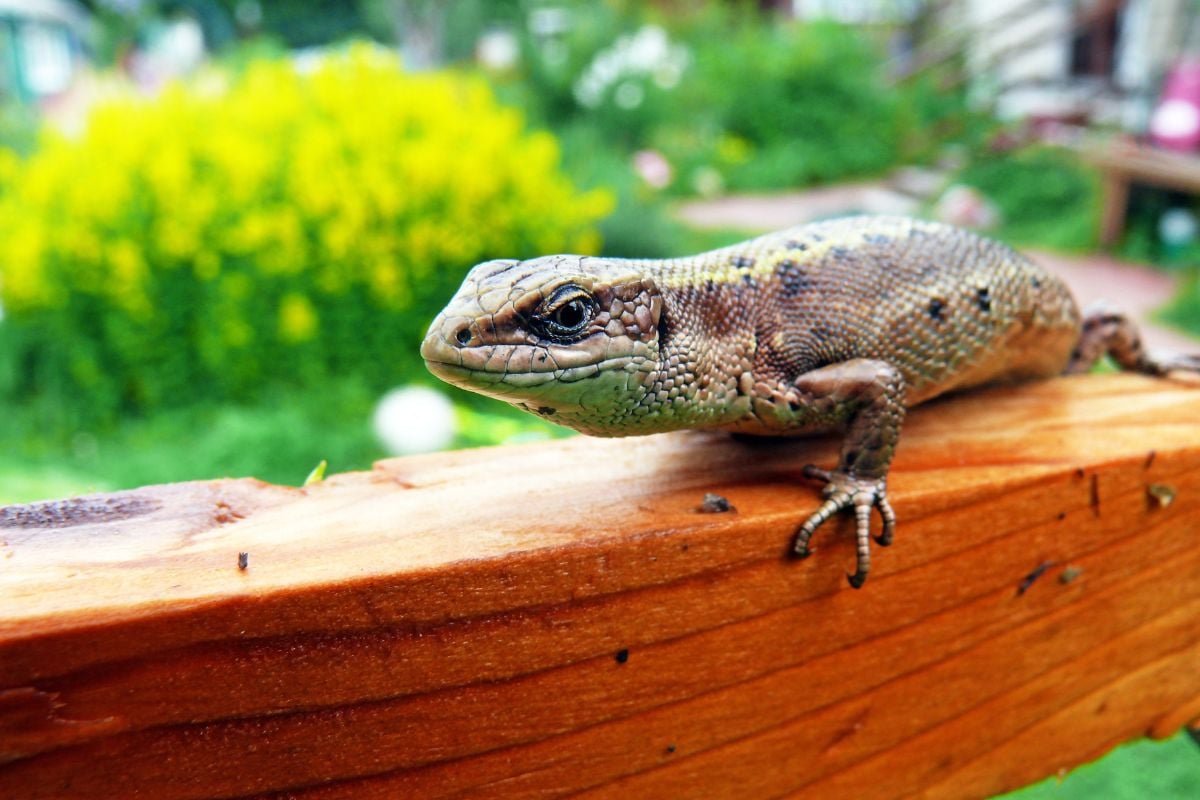Do you have a pet lizard that needs loving attention? Taking care of a lizard can be an enjoyable and rewarding experience.
From providing the right type of enclosure to creating a balanced diet, there are many aspects involved in caring for your scaly friend.

In this article, we will go over the basics of how to take care of a lizard so you can ensure your pet is healthy and happy. Let’s get started on this journey into the world of reptile care!
Appropriate Enclosure For Your Lizard
A proper enclosure is essential for a healthy and happy lizard. The size of the enclosure should be proportional to the size of your pet, allowing enough room for them to move around comfortably.
You’ll need to provide adequate lighting, heating, and ventilation in order to maintain a proper temperature range suitable for the lizard’s needs.
You’ll also want to make sure the enclosure is equipped with some kind of substrate such as sand, soil, or paper towels.
This helps keep your lizard’s feet clean and comfortable while providing an area for them to dig and hide.
Additionally, you can add live plants or other items that will create a naturalistic environment for your pet.
Finally, it’s important to remember that lizards are escape artists so make sure there are no gaps or holes in the enclosure where they could slip out!
Supplies Needed For Caring For A Lizard
Supplies needed for caring for a lizard can be broken down into three main categories: food and water, housing, and enrichment.
Food
When it comes to food, you’ll want to make sure your pet has access to fresh fruits and vegetables like collard greens, dandelion greens, bell peppers, squash, and carrots.
Additionally, you may need to supplement their diet with commercial lizard feed. Be sure to check with your veterinarian as to the appropriate amount of food your pet should receive each day.
Additionally, make sure that you’re not adding extra salt or seasonings to their food as this can be harmful.
Finally, always ensure that any food given is fresh and unspoiled – old food can contain bacteria which could make your pet sick.
Fresh water is also an important part of a lizard’s diet. It should be changed daily in order to ensure it is clean and free from contaminants or debris.
You can also add electrolyte supplements or vitamins to the water in order to provide additional nutrition for your pet lizard.

Housing
For housing needs, you’ll need an appropriate enclosure such as an aquarium or terrarium that’s suitable for the size and species of your pet.
As mentioned earlier, you’ll also need to provide some type of substrate like sand or soil and items that will create a naturalistic environment such as live plants or rocks.
Lizards also require a range of lighting depending on the type of species. For most species, natural sunlight is the best option, however this can be hard to replicate in captivity.
To create a suitable habitat for lizards, it is important to provide the right type and amount of light.
UVB lighting is essential for lizards as it helps them produce Vitamin D3, which is vital for their metabolic processes.
Most lizards require 12-14 hours of light per day, and it is important to have a temperature gradient in their enclosure.
This can be achieved by providing a light source that is bright enough to provide warmth on one end and cooler on the other.
Depending on the species, it may be necessary to provide an infrared light source as well. Additionally, providing a dark area in the enclosure can help lizards have a more natural day/night cycle.
Enrichment
Finally, lizards need plenty of enrichment in order to stay healthy and happy!
This includes providing them with things like climbing surfaces, hiding spots, hammocks, toys, etc., so they can explore their environment and get physical activity.

Dietary Requirements Of Different Types Of Lizards
Lizards come in a wide variety of shapes and sizes, and so it stands to reason that different types have different dietary requirements.
Knowing what to feed your pet lizard can be a bit of a challenge, but with some simple guidelines you’ll be able to provide them with the nutrition they need!
Omnivores
For omnivorous lizards, like iguanas and skinks, their diet should include both animal proteins such as insects and worms as well as fresh fruits and vegetables like collard greens, dandelion greens, bell peppers, squash, and carrots.
The key is providing a balanced diet with enough variety to ensure your pet is getting all of the essential nutrients.
Carnivores
Carnivorous lizards like geckos will require more animal-based proteins in their diets than omnivorous lizards. This could include things like crickets or mealworms.
Additionally, you may want to consider adding calcium supplements for added nutrition – especially for pregnant or egg-laying females.
Insectivores
Finally, insectivores such as anoles will require a diet heavily based on insects such as termites or beetles.
While these lizards are adept hunters in the wild, it’s important that you supplement their natural prey with additional insects purchased from pet stores or online retailers.
Foods To Avoid When Feeding Your Lizard
It’s important to be aware of the foods that are not safe for your pet lizard.
While leafy greens and fresh water are essential components of a healthy diet, there are some other items you should avoid feeding your pet.
Foods that contain high levels of fat and sugar should be avoided as they can lead to health problems such as obesity and diabetes.
This includes processed or packaged foods such as chips, cookies, crackers, and candy.
You should also stay away from feeder insects that have been treated with pesticides or antibiotics, as these can cause serious health issues in lizards.
Other items to avoid include dairy products (such as cheese or yogurt), raw meat, poultry, or fish, which can all be difficult to digest for a lizard.
Lastly, avoid giving them any type of human food (except fruits and vegetables) as it may cause digestive issues due to their inability to properly break down certain compounds found in these types of foods.
Conclusion
Taking care of lizards can be a rewarding experience. With the right environment, diet and plenty of TLC, these animals can live long and healthy lives.
Keeping in mind their special needs for heat, UVB light, calcium-dusted insects, vegetables and clean water is essential for the wellbeing of your pet.
If you are willing to dedicate the time needed to provide your pet with the best home possible then they will surely reward you with years of enjoyment!
- Can Leopard Geckos Eat Silkworms? - March 11, 2024
- Do Leopard Geckos Climb? - March 4, 2024
- Do Leopard Geckos Bask? The Answer Will Surprise You - February 21, 2024
